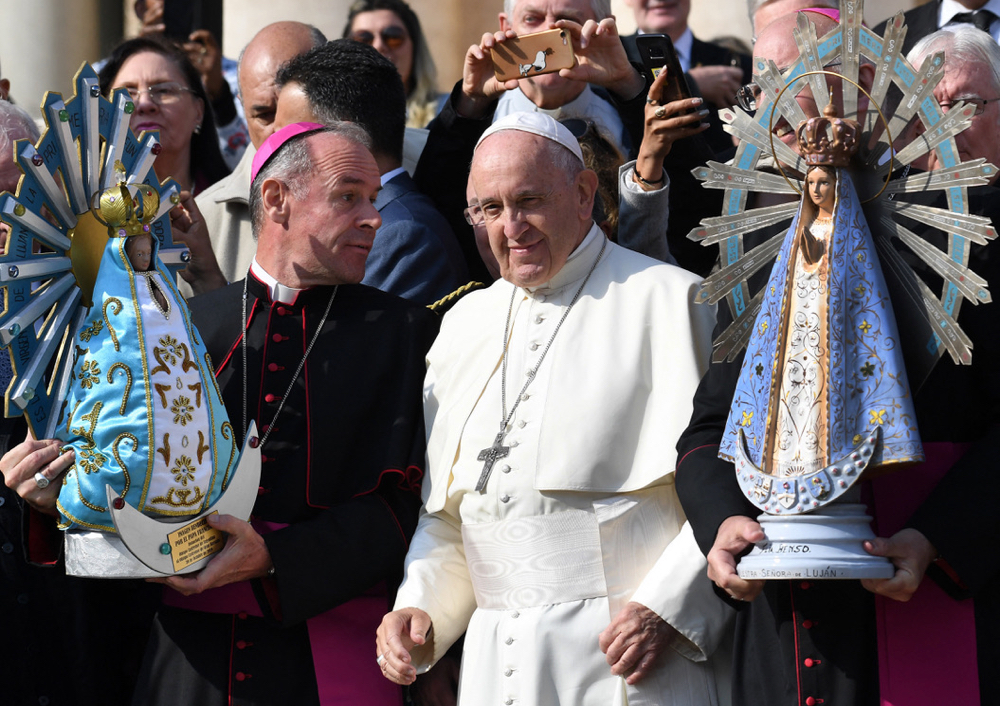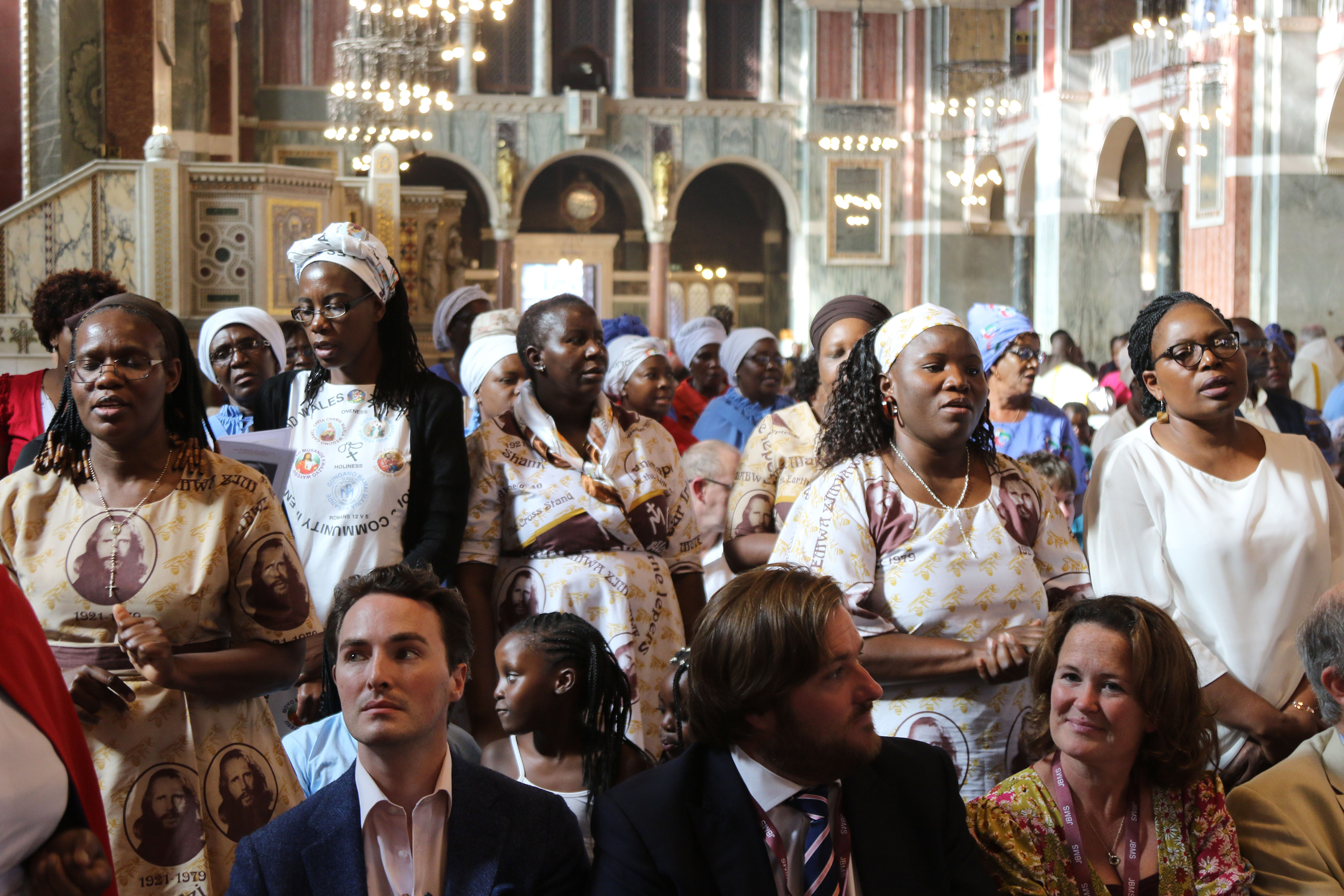A Catholic priest reported on the distress of the families of trafficking victims in several villages in rural Vietnam, with communities believing that many of the 39 people found dead in the back of a truck in Essex, UK, were Vietnamese. Fr Anthony Dang Huu Nam, a priest in Yen Thanh in Vietnam’s Nghe An province, 180 miles south of Hanoi, said, “the whole district is covered in sorrow” and “this is a catastrophe for our community”. Nghe An is one of Vietnam’s poorest regions, and home to many victims of human trafficking. Fr Nam led around 500 worshippers in a candlelit Mass for the dead last Saturday evening in the church in Yen Thanh. “That girl who said in her message that she couldn’t breathe in the truck …. her parents can’t breathe here at home,” Fr Nam said. One sibling of a likely victim, aged 20, said an identifying feature would be a tattoo of praying hands on a cross on his right shoulder.
The cause for the beatification of British-born John Bradburne, a Franciscan secular missionary, has started in Zimbabwe. His work with lepers and his murder in 1979 at the age of 58 will be examined first at a diocesan level and then at the Congregation for the Causes of Saints in Rome. If his virtues are recognised, he could become Zimbabwe’s first saint. The Zimbabwean Catholic Bishops asked the Vatican to beatify Bradburne earlier this year. Bradburne was shot on 5 September 1979, during the guerrilla war against white rule, after refusing to leave Mutemwa care centre. Meanwhile, last week, President Emmerson Mnangagwa said he believes Zimbabwe’s problems will ease with God’s intervention. Speaking on 21 October at a National Day of Prayer, he commented, “it is only God who can assist our nation”.
On Thursday last week, Bolivia electoral officials announced that Evo Morales had narrowly secured a 10-point lead over opposition candidate for president, Carlos Mesa. That was the margin needed to avoid a run-off election in the contested presidential race. Protesters took to the streets of La Paz after delays in counting the votes of the 20 October election. Morales will serve an unprecedented fourth term. His administration has been increasingly criticised for circumventing term limits through legal loopholes. An unexplained 24-hour pause in the vote count raised concerns of ballot-tampering. Mesa has questioned the vote count and encouraged people to continue peaceful demonstrations. On 23 October the Bolivian bishops at the Amazon Synod in the Vatican called for transparency in the vote count, saying Bolivians deserve “the whole truth” about the elections.
Catholic priests in Haiti took part a march in the capital of Port-au-Prince on Tuesday last week. More and more sectors of society have joined the movement calling for President Jovenel Moïse to resign. The protests began six weeks ago due to fuel shortages and simmering anger over Moise’s implication in a corruption scandal.
Last Sunday Argentinians voted for a new president, electing centre-left Peronist candidate Alberto Fernández. The first official vote count had incumbent Mauricio Macri at 41.42 per cent and Fernández at 47.21 per cent – enough for Fernández to win without a run-off. Fernández’s vice presidential running mate is former president Cristina Fernández, who was considered part of Latin America’s “pink tide” of progressive governments. The Argentina bishops did not make a statement on Sunday, but in August the bishops’ conference met with Alberto Fernández.
Seven Catholic anti-nuclear activists were convicted in a US federal court of conspiracy, destruction of government property, depredation and trespassing. The charges relate to a protest last year at the Kings Bay Naval Base in Georgia, in which the seven broke into the facility and conducted what they call a “plowshares action”. The seven face up to 20 years in prison.
Spain has exhumed the remains of Spanish dictator General Francisco Franco from a mausoleum in the Valley of the Fallen north of Madrid, where he had been interred for 44 years, and reburied him in a small family crypt 35 miles away. The government-ordered operation on 24 October pleased those who considered the mausoleum burial an affront to the tens of thousands who died in Spain's Civil War and under his subsequent regime. Franco's relatives – who opposed the exhumation – helped to carry his coffin and around 500 pro-Franco supporters chanted his name as his body arrived by helicopter at its new burial site. Franco, a staunch Catholic, ruled Spain between 1939 and 1975, after a three-year civil war.
After the latest killing of protestors in anti-government clashes with security forces last weekend, the Chaldean patriarchate in Baghdad has appealed to Iraqi officials “to listen seriously to their people, who are complaining of the current miserable situation, the deterioration of services, and the spread of corruption”. Protesters are demanding jobs, better public services and an end to sleaze. The patriarch, Cardinal Louis Raphael Sako, said he was "close to our people, sensitive to pain" and understanding the aspirations of protestors for a "better future". At least 149 people have been killed since 1 October.
Serious lapses in intelligence led to the Easter Sunday suicide bombings in Sri Lanka that killed 269 people, according to a parliamentary report on 23 October. It reinforced criticism of the state’s intelligence apparatus from Cardinal Malcolm Ranjith who said in July that many lives would have been saved if he had been informed of the potential threat and closed churches. He had called for an independent and transparent commission to investigate the attacks, blamed on Islamic extremists. The damning report found that Nilantha Jayawardena, the former head of the State Intelligence Service, knew of possible attacks nearly three weeks before the actual bombings took place but was slow to share the intelligence with relevant parties, including Cardinal Ranjith who is the archbishop of Colombo. President Maithripala Sirisena says he too was kept in the dark on intelligence about the planned attacks.
Bishop Pablo Virgilio David of Kalookan has said that killings during Philippines President Rodrigo Duterte’s drugs crackdown, that began three years ago, will not be address the drugs scourge. At least 6,660 people have been victims of extrajudicial killings, but the death toll could be upwards of 27,000 according to church and human rights sources. Last week’s resignation of the Philippines police chief, after criticism that he helped in “recycling” seized narcotics, has not surprised clergy at the frontline. Vincentian Fr Danny Pilario said: “People on the ground, the small-time drug users and pushers, already knew this a long time ago, that the police recycle their loot.” His parish, in a Manila slum area, has seen more than 300 killings over the last three years, and it supports a “widows and orphans” project to heal trauma and provide livelihood and educational projects.
Catholic leaders are echoing protesters’ calls for an independent inquiry into alleged police brutality during large-scale political protests in Hong Kong. Police have used rubber bullets, tear gas and water cannon on protesters repeatedly. “I ask the Lord to move the government of the special administrative region to respond to the public opinion, and set up an Independent Commission of inquiry' so that the community can hear the truth and begin the path of real reconciliation,” Hong Kong Auxiliary Bishop Joseph Ha Chi-shing, a supporter of the protest movement, said last week. Bishop Ha’s statement was posted as the legislature of Hong Kong withdrew the controversial extradition bill which prompted the protests.
A federal judge in Kentucky has reopened the $250 million defamation case filed by a Covington Catholic student against The Washington Post after dismissing it in July, allowing the lawsuit to proceed but narrowing its focus. U.S. District Judge William Bertelsman agreed to permit discovery on three of 33 allegedly libellous statements in The Post’s coverage of the 18 January incident pertaining to teenager Nicholas Sandmann. The Post has insisted that its reporting was fair and accurate.



 Loading ...
Loading ...